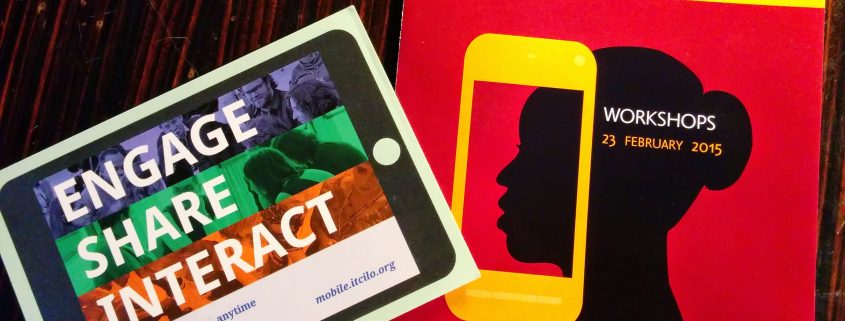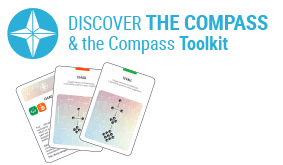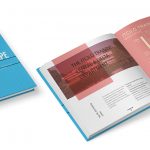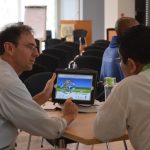Takeaways from the UNESCO Mobile Learning Week 2015
/From our colleague Alessia Messuti
With a keen eye for innovation in learning, ITCILO attended this week the annual event on mobile learning hosted at UNESCO headquarters in Paris.
Since 2011, UNESCO hosts the Mobile Learning Week (MLW) to attract education leaders, researchers and practitioners from around the world to discuss the latest practices, experiences and issues related to how mobile technology (either alone or in combination with other technologies) can enable learning and open access to education.
With more than 1000 participants coming from 70 countries this year, the conference lasts for 5 days and offers the opportunity to attend workshops and breakout presentations from learning and development experts (USAID, UN WOMEN, UNESCO, GIZ, UNHCR, OECD…), private sector representatives (Pearson, Qualcomm, Intel, Microsoft, Vodafone…) and academics (UCL, ODU, …). Last but not least, the conference is FREE of charge. therefore an attractive opportunity for all those involved in leveraging technology for education.
Why attending a conference on “mobility”?
Today over 6 billion people have access to a connected mobile device: mobile technology is changing the way we live and it is beginning to change the way we learn.
Quoting an intervention from Norbert Pachler, mobility is “a feature of the contemporary social, political, economic, political and technological world”; therefore mobile learning is “an individual habitus of learning characterized by immediate access to the world”, and using technologies to turn physical environments into learning sites (more here).
Believing that mobile methods and tools can extend the existing training capacity into diverse contexts, since 2011 ITCILO is embracing mobile learning within a range of projects to create engaging, shared and interactive learning experiences http://mobile.itcilo.org
Empowering women and girls
Despite the phenomenal growth of mobile technology, too many women and girls are still missing out on the opportunities it can deliver, especially in education. For this reason, the MLW 2015 is focusing on leveraging technology to empower women and girls and it is jointly organized with UN WOMEN, the UN organization founded in 2010 dedicated to gender equality and the empowerment of women.
Some of the highlights from key note presenters:
Chery Blair, Chery Blair Foundation for Women: “Education for women has benefits not only for women themselves, but also for their families and local economies. An educated woman will know her rights, will pass the value of education to her children, and will generate economic development for the local community”.
Patience Stephens, Special Advisor on Education at UN Women: “It’s time to make sure technology is available to women, both in the classroom and especially where women are. Let’s make sure we create an enabling environment for women to use technology. Investment in devices and infrastructure is important, but then it’s necessary to provide the right conditions”-.
Irina Bokova, Director-General of UNESCO: “L’innovation ne vient pas de la technique, mais de l’usage…. Il faut expander l’acces aux femmes”.
How can mobile learning address these issues and contribute to improved educational conditions for women? At MLW 2015 various stakeholders examined how we can best utilize mobile devices to achieve gender equality in education across four sub-themes:
– Equitable access (How can access to technology be expanded to ensure women participate equally in mobile learning?);
– Gender-sensitive content and pedagogy (What gender-sensitive mobile content and instructional approaches have worked well?);
– Literacy (How can mobile learning interventions break through barriers and promote literacy for women and girls in ways that are sustainable and scalable?
– Skills development (How can mobile technology help women develop twenty-first century skills and promote gender equality in society at large?
One Take away project:
At the conference I had the opportunity to meet Cliff Schmidt, Executive Director of Literacy Bridge, an American- Ghanaian NGO whose mission is to empower children and adults with tools for knowledge sharing and literacy learning. At the heart of their program is the Talking book:, an innovative low-cost audio computer designed for the learning needs of illiterate populations living in the poorest areas in the world. The Talking Book is a mobile device and as such it’s small and portable, and built to survive life in dry dust storms and tropical rain. The device’s simple interface allows anyone to listen to audio recordings on health, agriculture and education, to record new recordings and also to make copies of recording from one device to another. Most importantly, every time the device is brought to a new part of the world, instructions from the device are produced in the local language and last but not least, it does not require grid electricity, meaning people use commonly available batteries.
To have a better understanding, watch a demonstration: https://vimeo.com/8480241
[vimeo 8480241 w=500 h=281]
Talking Book Demonstration from Literacy Bridge on Vimeo.
If interested in getting to know other m-Learning projects from MLW 2015, follow this link on ITCILO CoP on Learning, Technology and Knowledge Management: there is a special section dedicated to Mobile Learning.
Insights on collecting evidence of what works
Following the workshop on “Findings of international technology-for-education landscape reviews, and moving the field forward for collecting evidence of what works, it seemed clear that most common aspects related to mobile learning projects refer to the fact that they are not cost-effective and therefore not sustainable; they are not replicable and it’s difficult to measure their impact on learning outcome.
From a landscape review conducted by GIZ and USAID on mobile for numeracy and mobile for reading, these are the most common findings:
– There is a general lack of evidence on learning outcomes;
– There is no comparison available between mobile technology and other technologies;
– There is limited evidence on general pedagogic frameworks;
– There is need for rigorous M & E;
– There is a prominent need for sharing and dissemination.
To comment on such issues, Molly Hageboeck, USAID hold a session on how to conduct impact evaluations and how research design can combine with field projects. Here below few resources worth sharing:
– USAID Technical note on Impact Evaluation providing an approach to producing high-quality impact evaluations across many fields;
– Impact Evaluation in Practice, an interactive textbook from the World Bank on quasi-experimental impact evaluation design.
– Integrating Human Rights and Gender Equality in Evaluation: Towards UNEG, a reference for ensuring that gender is considered at all stages of an evaluation.
Among the comments from the audience, two contributions are worth sharing:
– We don’t deal with controlled environment but with “messy” environments. How is it possible to set right control groups in evaluation? How is it possible to set up research and evaluation frameworks that take into account the complexity of the environments we deal with?
– It’s hard to measure the impact of technology in education as there are many variables involved. There is no technology effect as such and there are very diverse ways in which technology can shape learning. What’s the specific impact we are looking for?








